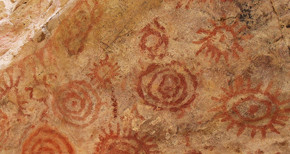Joint Statement on Indian Residential School Denialism
If you are experiencing trauma or feeling triggered, help is available 24/7 for survivors and their families through the Indian Residential Schools Crisis Line at 1-866-925-4419. Mental health support for Indigenous peoples in the lands known as Canada is available through the Hope for Wellness chatline at 1-800-721-0066 or using the chat box at https://www.hopeforwellness.ca/. The Indian Residential Schools Survivors Society provides information about these and other supports that are available: https://www.irsss.ca
The Canadian Archaeological Association (CAA), the Society for American Archaeology (SAA), the Canadian Association for Biological Anthropology ( CABA-ACAB), and the Canadian Permafrost Association (CPA) are deeply concerned about the increasing frequency of residential school denialism in mainstream media. The one-year anniversary of Tk'emlúps te Secwépemc First Nation's announcement identifying unmarked graves at the former Kamloops Indian Residential School (IRS) in British Columbia prompted a National Post article criticizing the initial reporting on the findings and calling into question additional findings of potential unmarked graves at residential schools and a New York Post article framing them as fake news. Such denialist accounts attempt to downplay the impacts of residential schools and the tragic events that happened to the children who attended them. They are built on flawed logic, as detailed by Daniel Heath Justice and Sean Carleton here and by Kisha Supernant here.
In the year since Tk'emlúps te Secwépemc First Nation's announcement investigators have identified hundreds of additional potential burials at multiple former IRS sites. Denialist arguments call into question the legitimacy of these investigations. The fact that children died or went missing from schools is indisputable. It is supported by the findings of the Truth and Reconciliation Commission (TRC) of Canada, which compiled first-hand knowledge by survivors, extensive archival sources, and employee accounts, among many other lines of evidence.
The location of children who went missing or died at residential schools is often unknown. Families were often not informed of deaths and disappearances, records were not always kept, existing records are not always shared, markers that may have been placed have long since disappeared. For communities wanting to find their missing children, ground penetrating radar (GPR) and other near-surface geophysics and remote sensing techniques can help them locate potential graves in the absence of clear indications of where children were buried.
Disturbingly, some of the denialist arguments point out that to date none of the missing children investigations have located human remains, implying that such discoveries are the only way to “prove” that graves are present. This is profoundly disrespectful to Indigenous communities experiencing the intergenerational trauma inflicted by these schools. While it is true that we can never be 100% certain about the cause of an anomaly without excavation, it is also true that the nature of individual anomalies, and patterns of multiple similar anomalies within a given area can in some cases reduce the uncertainty to almost zero. In other words, in some cases GPR can demonstrate the presence of graves beyond a reasonable doubt, especially when coupled with additional evidence from archives or oral testimony. No one has the right to demand that Indigenous communities excavate potential graves to “prove” the demonstrated fact that there are missing children who died at residential schools. Only Indigenous communities can decide their path forward to healing.
Residential school denialism undermines the tragic loss of innocent Indigenous children. It attempts to mask the horrors that took place at these schools and derail the growing movement by governments and the broader public to redress these harms and their ongoing impact on Indigenous peoples in Canada today. It denies the truth and works against reconciliation.
The CAA, SAA, CABA-ACAB and CPA call out the misrepresentations and false claims of denialists and strongly supports Indigenous communities’ rights to decide whether and how to search for their missing children, and how to commemorate and memorialize them. We support Indigenous leaders’ calls for access to all remaining residential school records and call upon all levels of government to continue to support communities as they walk this difficult path. The CAA will continue to develop resources to help Indigenous communities make informed decisions and training materials to help them build capacity to conduct their own investigations.



